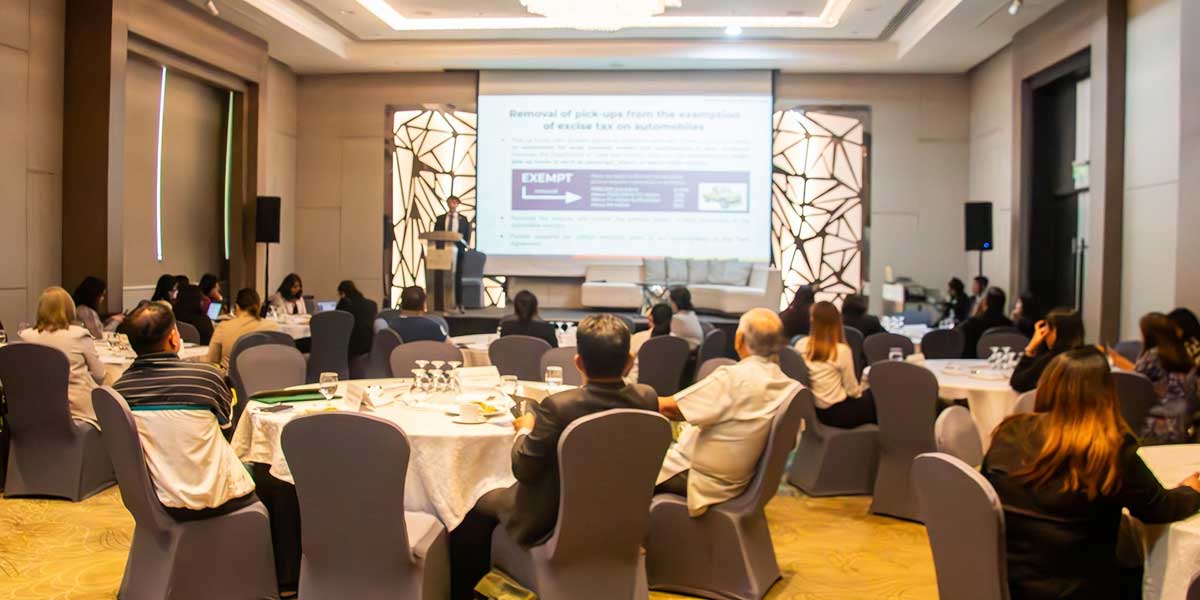
By Francis Allan L. Angelo
Amidst a fast-evolving global financial landscape, the Philippines’ Department of Finance (DOF) is poised to streamline the tax framework on passive income, financial intermediaries, and transactions to cultivate a simpler, fairer, and globally competitive environment.
The initiative falls under the administration’s priority measure, the comprehensive tax reform program’s Package 4, which was deliberated with stakeholders in a briefing on March 1, 2024.
In a move to promote fiscal efficiency and stimulate the growth of the capital markets, the DOF, under Finance Secretary Ralph G. Recto’s supervision, proposes a series of adjustments set to take effect over a progressive timeline, culminating largely in 2028.
A central element of this reform is the harmonization of the interest income tax at 20% starting in 2024, signaling a robust stride towards tax parity.
Royalties will continue to abide by the existing tax code until 2027, after which they will be aligned and reduced to 15% in the following year.
Dividend income tax will stand unchanged until 2027, after which a harmonized rate of 10% is proposed for 2028. This timeline is parallel to the planned phasing out of the stock transaction tax, slated for gradual reduction annually by 0.1%, tapering down from 0.5% to a modest 0.1% in 2028.
The financial landscape is expected to react positively to these adjustments, potentially heightening the appeal of the Philippine market to both local and international investors.
The taxation on financial transactions, including the gamut from sales to transfer of shares or stock certificates, is set to be maintained until 2027, post which they will be lifted, marking a substantial shift in the transactional dynamics of the financial sector.
Bank checks, drafts, certificates of deposit not bearing interest, and similar instruments are set to remain tax-stable, preserving the status quo in these areas.
The reform extends its reach to healthcare and insurance, where a notable shift from the current 12% VAT on HMO, pre-need, and pension plans to a 2% premium tax is planned. This strategic tax realignment is designed to encourage Filipinos’ participation in life and health insurance products, a move towards greater financial security and inclusion.
In a comparable vein, insurance policies covering property, fidelity bonds, and other domains will see an annual 1% tax rate reduction, culminating in a 7.5% rate by 2028. This gradual decrement is anticipated to enhance the affordability and uptake of insurance products, safeguarding more assets and interests across the archipelago.
Philippine Charity Sweepstakes Office (PCSO) tickets, prizes, and other winnings will continue to enjoy tax stability, ensuring ongoing support and contributions to charitable causes.
Mortgages, pledges, and deeds of trust will experience a tax reduction to 0.3% in 2028, easing the financial burden on property owners and facilitating growth in the real estate sector.
The DOF has taken a collaborative approach, absorbing input from various stakeholders, to refine this forward-looking tax package. The proposal, which already won approval from the House of Representatives on November 14, 2022, is under review by the Senate’s Technical Working Group, part of the Committee on Ways and Means.
Stakeholder representation at the briefing was robust, with attendance from a wide array of sectors, including commerce, finance, racing, stock exchange, automotive manufacturing, development, thrift banking, and central banking.
Further stakeholder briefings are on the horizon, with discussions on excise tax for single-use plastics, motor vehicle user’s charge, and VAT on digital service providers.




















